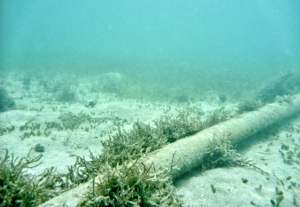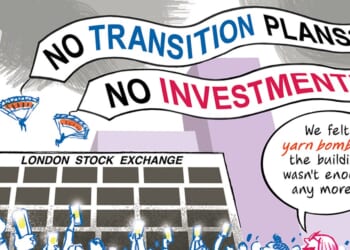The Ukraine war has destroyed Europe’s complacency and restored a sense of urgency to national defense. This has been manifested in many ways. Today’s London Times reports on one significant instance, relating to Britain’s undersea cables. While this particular issue is specific to that country, I have little doubt that we in the U.S. face similar infrastructure issues:
Defence grandees have secretly warned the prime minister that he is running out of time to protect Britain from a “catastrophic” attack on its undersea cables that could spark a complete civil collapse.
***
The cables carry 95 per cent of Britain’s data around the world and have become the backbone of the digitalised economy.
What would happen if Russia cut those cables?
[Committee member Lord] Hutton told the podcast: “Undersea cables are now the most important part of our national infrastructure. Without them, we are going to be propelled back almost into the dark ages.
“The fundamentals of national life today would be at risk — how our health service operates, how our banking system operates.
***
As well as crippling banks and the NHS, sabotaging multiple cables at the same time would also take down the internet as well as large swathes of the retail and travel sectors — and all within a few minutes.Hutton said: “The biggest concern that we had when we looked at our vulnerabilities is the financial services sector. Just imagine a country where you can’t access your bank account.
“You can’t get anything done. That’s a world of utter chaos, where civil order is going to hang by a thread if we don’t manage that properly.
“If you imagine you can’t pay any of your bills, you can’t pay your mortgage, you can’t access your cash, you can’t buy food, you can’t fill your car up with petrol.
“Now that would create some very significant problems — civil strife, law and order — because the whole fabric of our lives would begin to disintegrate, and it could be gone literally just like that.”
It is a nightmarish scenario. Modern life is complex, and relatively easy to disrupt.
Who might do the disrupting? In this case, Russia.
For years, government contingency planning was based around accidental damage to the cables from fishing trawlers or ships’ anchors.
However a series of recent acts of open Russian aggression sparked deep alarm. A major power line between Finland and Estonia was cut in December last year by the anchor of a Russia-linked oil tanker, Eagle S, in what was believed to have been a deliberate sabotage operation by Moscow.
In January, a Royal Navy ship was sent to monitor the Russian spy ship Yantar, which spent days lurking right over transatlantic cables off the Cornwall coast.
It was the second time the Yantar, which is equipped with cable-cutting equipment…
A direct threat, in other words.
…and two self-propelled submersibles, had entered British waters in three months.
In February, Secretary of War Pete Hegseth delivered a major policy speech to NATO leaders in Brussels. Hegseth bluntly told our NATO allies that in the coming years, America will be preoccupied with our own borders and with China, which for us is a peer rival. Russia, he said, is not a peer rival for the U.S. It will be primarily up to Europeans to defend themselves against Russia.
The Europeans have responded to that challenge. How well have we done, in the meantime, to defend ourselves against potential 21st-century attacks from the Chinese? Presumably the central issue here is cybersecurity. Let’s hope our government has a plan to avert the day when the internet doesn’t work, our banking system is down, and you can’t gas up your car.


















